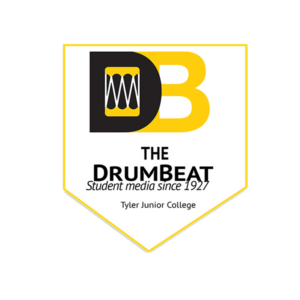Brandon Highlander, Staff Writer

Brandon Highlander, Staff Writer
As the heat stroke rates for athletes rises, many colleges are looking to find ways to keep their players hydrated. Recently this month, University of Maryland football player Jordan McNair, died of heat stroke.This led to Head Coach DJ Durkin to be put on administrative leave. As a result of this death, and many others like it, heat stroke prevention in not just high school, but college athletics has been a ringing topic in today’s news.
The Gatorade Sports Science Institute states that the leading causes of heat stroke in are from dehydration and players being pushed too hard, too fast.
Coach Matt Gordon of Tyler Junior College’s football team stated that, “TJC is very fortunate to have so many trainers on staff. We have around 30 that are split up into each group of players.”
Coach Gordon also pointed out that early morning workouts help acclimate the players to the condition they need to be in to play.
“The helmet is heavy, and the full padding is too, so the first few days of practice we go without pads, so the players can adjust to the heat,” Gordon said.
Just like in football, all outdoor sports run a risk of athletes suffering a heat stroke. TJC’s Women’s Soccer coach Corey Rose explained in an interview with us, “I think it goes beyond just hydration … A coach and the team’s trainers have to have a good feel for the team and how well they are able to perform.” He told us that another way the team tries to avoid this issue is by practicing in the coolest parts of the day if possible, such as early in the morning or later on in the evening.
Just like in sports, the band also runs a risk of suffering from heat stroke. Being outdoors, practicing with a heavy instrument and its gear attached to you, and being in the heat during formation practice can take a major toll on the students.
TJC Band director Jeremy Strickland told us that water is “non-negotiable”, and is “neither used as a reward or a punishment”.
He told us that every student is strongly encouraged to bring their own water in addition to the set water breaks they have during both practices and games.
Director Strickland also has staff members scattered throughout the band’s formation at games to keep an eye out for possible signs of heat exhaustion. “We don’t like to take chances with our students’ well being,” Strickland explained.
Heat stroke prevention is very important to the staff and coaches of the TJC athletics, and they make sure they exercise care when their players practice for extended periods of time. It is ultimately important to know the signs of heat stroke and dehydration, because if coaches and players can spot them early, proper steps can be taken to cool the player down.
Even as an audience to these sporting events, these symptoms are recognizable and preventable.



